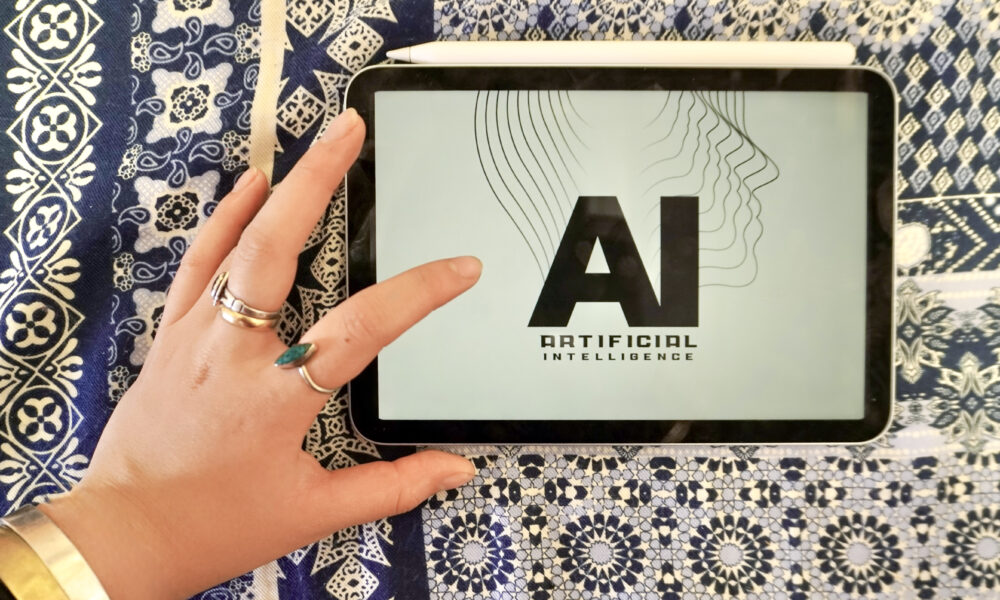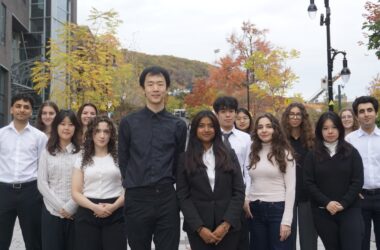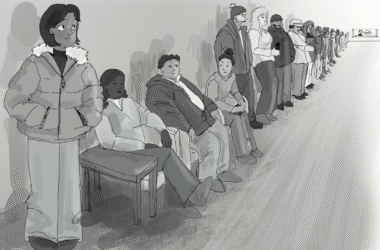Across higher education, professors, students, and administrators are grappling with how to respond to the widespread availability of fast, free, and increasingly capable chatbots like ChatGPT. In a survey conducted by The Tribune with 46 McGill undergraduate participants, only one in five students reported not using ChatGPT for class, while 56 per cent reported using it to revise their writing, and a full 21 per cent admitted to using artificial intelligence (AI) to write “part or all” of a written assignment for class.
Despite AI’s ubiquity in modern education, ChatGPT remains a very recent technology. Nov. 30 marks the three-year anniversary of ChatGPT’s release to the public, making it a good opportunity to take a step back and see how exactly we got here.
How did this all start?
A lot can happen in three years—it’s already difficult to recall the initial splash ChatGPT made when it debuted in November of 2022. Chloe Sproule, U4 Arts, recounted some of these early memories in an interview with The Tribune.
“I was in the GIC, and it was the evening, and my friend was like ‘Hey, guys, come check this out!’ and we’re all like ‘What is it?’ and he’s like ‘Look at what you can do. This is gonna be the future!’” Sproule said. “What we were doing was like what you would do as a kid with Siri, which was like ‘Tell me a joke!’ That’s the first impulse you have. And then we just wrote little poems about everyone, based on our different friends.”
Sproule’s account was common among users playing with ChatGPT for the first time, as reflected by the tone of early media coverage surrounding the chatbot. Articles from the first week after ChatGPT’s release have a bemused-but-playful tone, with headlines like “OpenAI invites everyone to test ChatGPT, a new AI-powered chatbot—with amusing results” in Ars Technica, and “The Brilliance and Weirdness of ChatGPT” in the New York Times.
Where did ChatGPT come from?
This moment of collective experimentation and play with ChatGPT hints at something that we’ve forgotten over the last three years: The release of ChatGPT to the public was not the sudden birth of a never-before-seen technology. It was the tipping point of text generation from a novel technology in computer science to a legitimately useful tool that was accessible to users without programming backgrounds.
Andrew Piper, a professor in McGill’s Languages, Literatures, and Cultures Department, has worked with text generation models since before 2022, and remembers experimenting with earlier models such as GPT-2 and BERT in his classes.
“We played with various writing agents out there that you could use that were pretty terrible, and like, kind of parlour games,” Piper told The Tribune. “Text generation was a curiosity, and then, literally, there was a before and an after.”
While ChatGPT was a big step up in quality, it had another crucial feature: An accessible user interface. Prior to ChatGPT, it was very difficult for a non-programmer to experiment with text generation themselves. OpenAI’s own announcement of ChatGPT from Nov. 30 emphasized the conversational, interactive, and accessible nature of their new model.
This isn’t fun anymore
By mid-December, the initial excitement and sense of play had already petered out, with the mood at the New York Times vacillating between existential dread and premature attempts to moralize. Take, for example, these three articles appearing between Dec. 10 and 21 of 2022: “The New Chatbots Could Change the World. Can You Trust Them?,” “Will ChatGPT Make Me Irrelevant?,” and my personal favourite: “How to Use ChatGPT and Still Be a Good Person.”
After the 2022-2023 academic year, it was clear that this technology would not only shake up society, the job market, and ethics, but also the core of what it means to get a university education.
“I think the intuition that we were pretty cooked was clear early on,” Piper remembered. “Like, a lot of university-level behaviour had just been automated.”
This is when we started to get a wave of think-pieces about the college cheating crisis, as well as more optimistic pictures of a world where AI scaffolds and extends learning rather than harming it. One Atlantic article announces, “The First Year of AI College Ends in Ruin,” while another wonders, “My Students Use AI. So What?”
Three years on, how are students doing?
Like the chatbot itself, research on the impacts of ChatGPT has only had three years to develop, so many findings remain tentative—and in many cases, contradictory.
Some of the split in research findings can be explained by distinguishing studies that introduced ChatGPT in a ‘controlled’ way from those that studied real-world AI use. For instance, a 2025 study ran three trials: One group of students only attended lectures, one only used AI, and one attended lectures while using AI as a study aid. The last group performed significantly better on the final exam than the lecture-only or AI-only group. But does this study setup reflect the reality of students’ ChatGPT usage? Results from The Tribune’s survey found that some did, indeed, seem to be using AI in this way, and generally had positive feelings toward it.
“I’m very happy I’m studying at the same time as ChatGPT. Especially for my coding class it has really helped me write code for projects and figure out where I’m going wrong.”
“I am happy to have access to the tool […] it can help me to save time, especially when trying to understand a concept or to understand a wide array of data/information in a short amount of time….”
On the other hand, a significant group of respondents had more negative things to say:
“It makes me uneasy when I give into the temptation to use ChatGPT because I wonder afterwards if my own ideas would have been better or worse than the ones AI gave me.”
“ChatGPT has been a constant temptation in stressful moments. I try not to do so, but when the tool is readily available and I feel desperate for time, it is extremely useful.”
This trend in the survey responses is consistent with other research, including a 2024 study, which found that students who used ChatGPT for a research project experienced lower cognitive load at the expense of lower-quality reasoning and argumentation.
Almost more worrying is research that studies AI usage in the wild, rather than setting up controlled trials. For example, a 2024 study of 387 students found no significant direct correlation between AI usage and their perceived academic performance, whereas it did find a correlation between AI usage and loneliness, as well as a decreased sense of belonging. The authors attribute this partially to “human-substitution behaviour” among students who use ChatGPT, which is also attested in the survey results:
“My ideas tend to be scattered and disorganized—ChatGPT helps me sort through what I’m thinking and put it on paper in a cohesive way. Alternatively, I could do this with a friend, but I don’t feel comfortable asking someone to do what ChatGPT does for me.”
How about professors?
ChatGPT has also stirred things for professors, with two dominant trends arising: Shifting to oral or handwritten exams that are ‘AI-proof,’ or actively trying to incorporate AI into their curriculum.
Derek Nystrom, professor in McGill’s Department of English, noted that grading any kind of take-home assessment inevitably puts the professor in the position of AI-detector.
“The interesting thing about the ChatGPT essay is that it can, at this point, generate something that sounds like a student who hasn’t been paying a lot of attention,” Nystrom said. “You just have this sneaking suspicion about, like, is this a C paper, or is this a paper that should get a zero because it wasn’t written by the student?”
Tabitha Sparks, another professor in McGill’s English Department, has tried to incorporate ChatGPT into her curriculum by adding a step to her essay assignment where students were instructed to interact with ChatGPT before revising and expanding its responses into their final drafts.
“What really surprised me was that in examining it and discussing with my students, it actually was clarifying for what they should be doing as students of literature,” Sparks told The Tribune. “It got me to write assignments that I think better specified what I looked for as a high level of analysis.”
Overall, though, three years after ChatGPT’s release, the main feeling expressed by professors wasn’t so different from the students: Confusion.
“Everyone’s super confused. It’s hard to know what to do,” Piper said. “We’re all struggling with, like, how do we maintain learning authenticity and learning goals and all that jazz when there’s this super intelligent bot at your disposal, and nobody has cracked that formula yet, right?”









